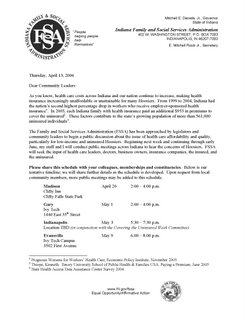Living in the 21st century places us in a unique position. We live in an age of television, cell phones, text messaging, and internet and are quickly becoming a wireless world. With all of these advances, what are we losing?
The simple answer is words and composition.
For thousands of years people communicated primarily through words, spoken directly to one another. Information moved almost exclusively by speech. Other forms of communication such as poetry, music, paintings and print were limited because of resources and supply. Chiseling in stone was time consuming.
The major Cultural Revolution began with the invention of the printing press. It is no accident that the print culture was followed closely by the Reformation, the Renaissance, and Enlightenment. Print appeals to reason, to analysis, to objectivity and to order. We can spend time analyzing and studying printed material unlike an oral argument that doesn’t seem to hang around. Print is able to handle exposition unlike any other form of communication.
Until very recently, most of the world was almost exclusively a print culture. Public discourse and debate was carried on through print—books, pamphlets, and newspapers. Early America was almost unanimously literate to some degree. Preachers wrote out their sermons and read to their congregations. Debates were delivered from manuscripts and as a result, people quickly developed complex, thorough arguments for government, economics and religion.
The advancements seen in the past century has altered and hindered our print culture. Television radically changed our society. We have become a picture dependent society. A picture may speak a thousand words, but it doesn’t do it in the same style or grace. Printed literature is systematic, organized, and logical. You start at the upper left and read across and down. Pictures place no restrictions. You see the pictures in its entirety and then focus on what interests you. Pictures can be presented in such a rapid fashion that there is little time for thought or reflection. It becomes pure emotion.
This is also noted in the teaching shift from phonics to whole word style. I believe kids lose the rational thinking when this method of teaching is used. They see and recognize the word much like they see a picture, but fail to understand the logic of what made the word. I think transitioning back to phonics based teaching would be a benefit.
Words can deal with abstract concepts whereas pictures cannot. Words can explain ideas and concepts whereas pictures can just show you the result. Words appeal to the intellect and pictures appeal to emotions. Commercials wanting you to donate money to starving children don’t just use words to tell you, they show pictures because it strikes emotions. Words can also stimulate emotions especially with poetry, but still not as powerfully as pictures.
Emotions are not intended to master us; they should be the servants of our intellect and will. Our society tends to be moving away from this concept and it has two significant consequences.
1. We fail to analyze and reflect on specific issues.
2. Our instinctive reaction to people and circumstances is rapidly becoming emotional rather than rational.
We tend to avoid situations that we believe will be emotionally challenging and therefore in relationships we will fail to resolve conflicts. It becomes easier to avoid them. I counsel people to write letters to their spouses or relatives during times of conflict. It helps both individuals to organize their thoughts and rationally deal with the issues. A letter is something that you can see, touch, and feel and it stimulates your brain through multiple pathways that words alone cannot.
Reading and writing is the antidote to the excessive emotionalism of our current culture. Our current culture requires mental attitudes and skills developed only through reading and writing. Composition is not simply an art form to enhance the curriculum, but a fundamental skill to prepare kids and adults for working in this complex technological society. It also teaches and helps everyone debate effectively, reason rationally, and resolve conflicts rather than avoiding them.





